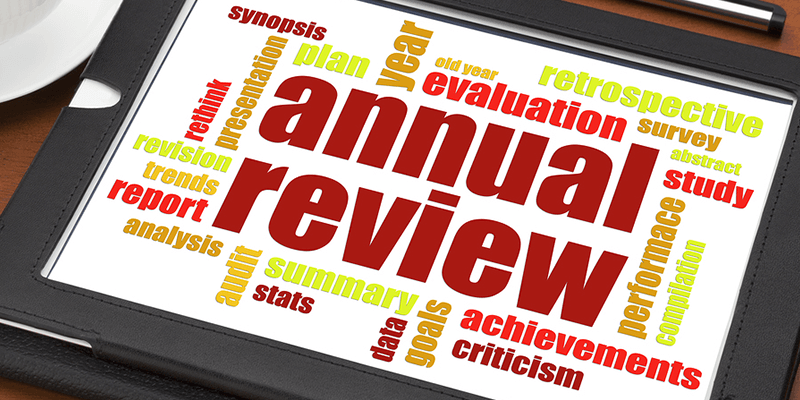
Updated on: April 4, 2019
Your Year-in-Review: How Reflection Helps You Build Momentum
During the relatively calmer final weeks of the year, remote professionals can embrace a self-performance review, from which they’ll uncover their personal strengths and identify areas of weakness. Objectively evaluating one’s own abilities is a challenging effort in and of itself, but the resulting insights are worth it. (Note: those who refuse to look in the rearview mirror rob themselves of the opportunity to learn some pretty valuable lessons.)
If you’re ready for improvement and better results, know that I’m cheering you on every step of the way!
Wondering how you can meaningfully reflect on an entire 365-day period in the course of a few hours? Here are some helpful dos and don’ts of reflection:
Do acknowledge your blind spots.
We all have ‘em. While you might be a subject matter expert in one area, you could be far less adept when it comes to navigating difficult conversations, interacting with people of different cultures, or managing your own frustrations. Spending time on introspection to identify where you may be falling short is the first step toward a greater awareness of your limitations—and an openness to others’ opinions.
Don’t beat yourself up over the past.
Whether you’ve had an all-out remote work fail, made an awkward mistake, or simply have yet to achieve perfection with a project, now is not the time for self-flagellation. This period of reflection is intended to get you on a positive path. So rather than fixating on the low points, think about how you might avoid them, or ways that you can adjust your expectations in the future.
Do ask others for their take.
As a remote employee, you may only receive one or two formal performance reviews in a year; if you are your own boss, however, this number may (astonishingly) be zero. Set up times to talk openly face-to-face or via video chat with colleagues, peers, and clients whom you trust to offer an honest opinion based upon their observations and interactions with you. Cherish this feedback and use it to chart a path for personal growth.
Don’t ruminate over disagreements or hold grudges.
How big of a role does forgiveness play in your professional life? Depending on your personality, letting past slights and miscommunications slide might be a difficult prospect. Yet keeping an accounting of others’ perceived issues only serves as a distraction from more productive actions. Sever any ties that are inherently toxic, but work on exercising your ability to maintain respect toward others and an ongoing dialogue during times of discord.
Do examine patterns that lead to success—and failure.
Think back on the year’s strongest relationships, best projects, and exceeded goals. Do these share anything in common in terms of preparation, time commitments, or other approaches you took? Similarly, when you consider the initiatives or partnerships that missed the mark, are there personal habits you can cultivate to increase your chances of fruitful results, and/or those that can be minimized (or eliminated entirely) to lessen any issues?
Don’t let bad behavior off the hook.
Thanks to movements like #MeToo, more emphasis is being placed on the appropriate treatment of others in the workplace. Even those who don’t call a physical office home can experience unconscious bias or outright prejudice in business meetings, networking events, or casual conversations in, say, a coworking space. If you’ve faltered in the past, make this the year you’ll do better. If you’ve experienced this with others, know how you’ll be vocal about defending your rights.
Photo Credit: bigstockphoto.com
By Megan Dawkins | Categories: Work Remotely



